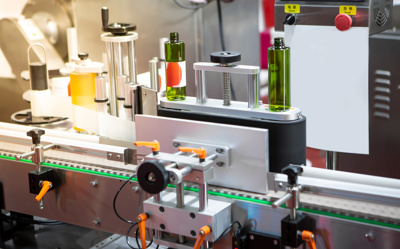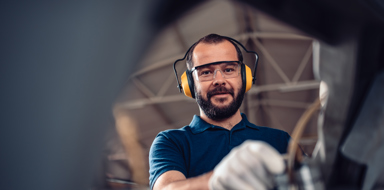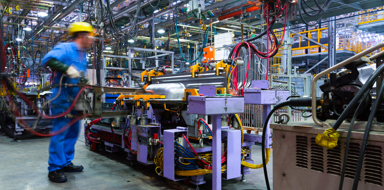
Low-cost, smart labels could help increase the accuracy and speed of recycling for plastic food and drink packaging.
Unsure if your yoghurt pot can be recycled or whether it needs to be washed first?
A project has developed ‘smart’ labels that could enable recycling centres to sort plastic packaging more efficiently, and even provide consumers with instructions on how and where to recycle their waste.
Innovation Case Study - Sort-itThe SORT-IT project explored the feasibility of electronically ‘tagging’ packaging so that it can be identified and tracked.
“Typically, material recovery facilities sort packaging using a near-infrared optical sorting machine. However, the complexity of packaging materials, differences in colour and contamination with food residue mean a large proportion is missed or incorrectly sorted – and a lot of valuable material instead ends up landfill or incineration,” says Joshua Young, Circular Economy Lead at PragmatIC Semiconductor, which led the project. PragmatIC Semiconductor innovates and manufactures low-cost, flexible electronics that enable everyday objects to become smart and connected. With £274,000 funding from the Made Smarter Innovation challenge, the company worked with the University of Sheffield Advanced Manufacturing Research Centre (AMRC) to demonstrate how its ultra[1]low-cost Near Field Communication (NFC) technology could be used to identify, track and sort waste moving along a conveyor belt. Labels using PragmatIC’s NFC technology were applied to items of packaging to provide them with a unique identity. Sensors deployed on a conveyor belt were then able to read the label, identify the packaging, localise its position and remove it for sorting using a robot arm.
“It means the packaging can tell a machine about its material composition, as well as where or how it has been used,” explains Bobby Manesh, Head of Research at AMRC Cymru. “It significantly improves the sorting accuracy of mixed recycling, which not only reduces the amount going to landfill, but also means materials are not ‘downcycled’ into lower grade materials.”
This is important because the food and drink packaging industry is struggling to secure enough high-quality material for recycling, known as recyclate, says Young. “There’s growing demand for high quality recyclate, both from industry commitments to plastic targets and from brands and retailers who face a plastic packaging tax at £200 per ton of packaging with less than 30% recycled content.” The technology also offers potential benefits for other industries under scrutiny for recycling, such as fashion and textiles. “More widely, there is scope for it be used to improve the automation and traceability of manufacturing processes and operations, or within the logistics and e-commerce industry,” says Manesh. “Being able to identify and track items around a manufacturing facility or along a supply chain is key to creating the smart factories of the future.”
Building the success of the SORT-IT project, PragmatIC Semiconductor and the AMRC are now working on the £1.4m project TRACE (Technology[1]enabled Reusable Assets for a Circular Economy), which aims to maximise the recovery and reuse of high value materials through digital technologies. “We are exploring opportunities for the technology to digitalisation reusable systems, enabling them to become a reality at scale. For instance, could consumers return packaging in-store or through online delivery and obtain incentives or rewards for doing so?” says Young. “For environmental and economic reasons, we need to dramatically increase the return and capture of food-grade plastics. This type of engagement could help consumers see plastic as a valuable asset to re-use many times rather than as something to use once and throw away.”





